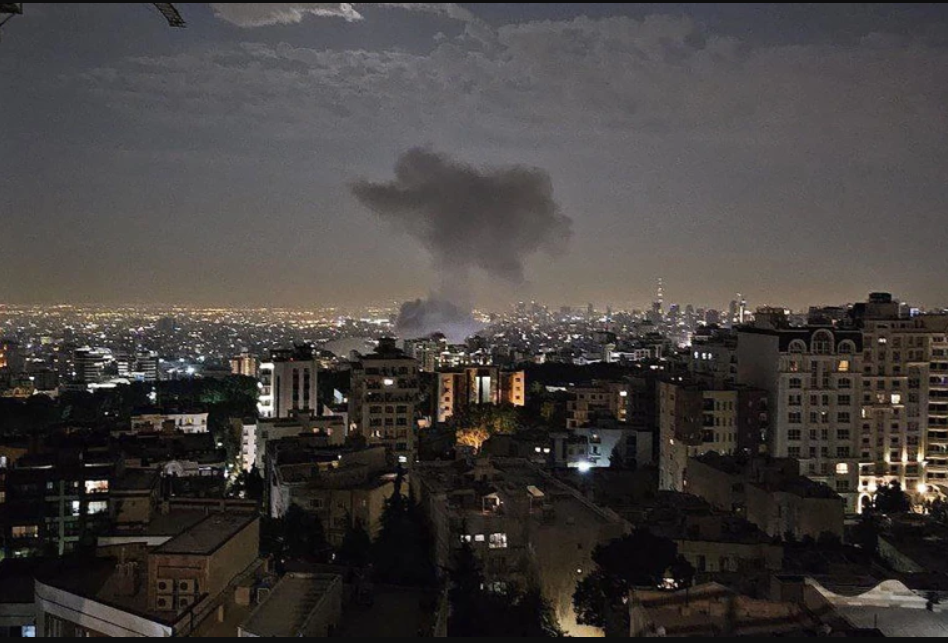Israel-Iran Conflict 2025: Timeline, Causes, Impact, and Global Response
Israel launches major strikes on Iran targeting nuclear sites, triggering a high-stakes conflict. Read the full timeline, causes, global response, and future possibilities of the 2025 Israel-Iran war.
The Middle East is once again at the center of global headlines, as Israel and Iran find themselves on the brink of an all-out war. In June 2025, a dramatic escalation occurred when Israel launched a series of targeted airstrikes on Iranian nuclear and military facilities, sparking fears of a wider regional conflict. Let’s explore the situation in detail — how it started, what led to the escalation, what’s happening now, and what the global community is doing about it.

🔥 What Triggered the Israel-Iran Conflict in 2025?
The tension between Israel and Iran is not new. However, recent developments pushed the decades-old hostility to a dangerous new level. According to U.S. intelligence sources, Israel had been preparing a strike on Iranian nuclear facilities for months. This plan was part of a broader effort to prevent Iran from developing nuclear weapons — a goal Israel views as an existential threat.
On June 12, 2025, Israel carried out “Operation Rising Lion,” a surprise preemptive airstrike targeting Iran’s nuclear sites, missile production centers, and key military infrastructure. The operation was prompted by intelligence suggesting that Iran’s nuclear program was nearing the “point of no return.”
📍 Key Developments So Far
- Israeli Airstrikes: Multiple Iranian sites, including nuclear facilities and military bases, were bombed in a massive overnight operation involving 200 Israeli fighter jets.
- High-Profile Casualties: At least 20 senior Iranian commanders were killed, including IRGC Aerospace Commander Amir Ali Hajizadeh and Iran’s military chief of staff Mohammad Bagheri.
- Nuclear Scientists Targeted: Six Iranian nuclear scientists were also killed, escalating tensions to a new high.
- Iranian Retaliation: Iran launched over 100 drones targeting Israeli territory. Israel claimed to intercept most of them with its advanced missile defense systems.
🇮🇱 Israel’s Justification and Intent
Israeli Prime Minister Benjamin Netanyahu stated that the operation aimed to “roll back the Iranian threat to Israel’s very survival.” The strike was intended to dismantle Iran’s ability to build nuclear weapons, as well as its capacity to strike Israel using long-range missiles.
Defense Minister Israel Katz added that the strike was a direct response to intelligence reports indicating Iran had accumulated enough enriched uranium to build at least nine atomic bombs.
“This targeted military operation will continue as long as necessary to remove the threat,” said Netanyahu.
🇮🇷 Iran’s Reaction and Threats
Iran’s Supreme Leader Ayatollah Ali Khamenei condemned the Israeli attack, warning of “bitter and painful consequences.” Iran has vowed a harsh response, and its state media reported that the United States was complicit in the strikes.
- Drone Retaliation: Iran launched a wave of over 100 drones into Israeli airspace.
- Casualties and Damage: The strikes on Iran injured at least 95 people across 12 provinces, with heavy damage reported at several military sites.
- Suspension of Talks: Iran has halted ongoing nuclear negotiations with the U.S., citing the Israeli attacks as an unacceptable breach.
🇺🇸 U.S. Response and Role
While President Donald Trump stated he was aware of Israel’s plans, the White House has denied direct involvement. Trump had previously issued a 60-day ultimatum to Iran to reach a nuclear deal, which expired just before the Israeli strikes.
Secretary of State Marco Rubio emphasized, “The U.S. was not involved in the strikes. Iran must not target U.S. bases or personnel.”
Despite not directly participating, U.S. officials are reportedly stepping up intelligence-gathering to support possible future developments.
💥BREAKING:
— Kanishk chaudhary (@Kanishk1804) June 13, 2025
TRUMP URGES IRAN TO MAKE A DEAL ASAP.
HE ALSO STATES THAT THE NEXT ISRAELI ATTACKS WILL BE EVEN MORE BRUTAL!#Trump #Iran #Israel #MiddleEast #Geopolitics pic.twitter.com/OACy3qvC9k
📉 Global Impact: Markets and Diplomacy
The conflict has already had a significant global impact:
- Oil Prices Surge: Brent crude jumped by over 6%, reaching $74.15 per barrel.
- Global Stock Markets Drop: Investors are shifting to safer assets amid the rising geopolitical risk.
- Diplomatic Freeze: Talks between Iran and the U.S. have been paused, and European leaders have called for an emergency UN Security Council meeting.
⚔️ Military Capabilities: Israel vs. Iran
Israel’s Strengths:
- Advanced air force with over 600 aircraft
- Superior missile defense systems (Iron Dome, David’s Sling)
- Support from allies including the U.S.
Iran’s Weaknesses (Post-Attack):
- Severely damaged air defenses
- Loss of top military commanders
- Economic instability due to sanctions and internal unrest
However, Iran still maintains:
- A large missile arsenal
- Regional proxies like Hezbollah and Houthis
🕊️ What’s Next? Possible Scenarios :
1. Full-Scale War
If Iran retaliates aggressively, the situation could spiral into a regional war involving multiple countries.
2. Controlled Escalation
Israel may limit further attacks, and Iran may avoid a large-scale response to prevent further damage.
3. Return to Diplomacy
The U.S. could intervene diplomatically to prevent further escalation. Trump has hinted at giving Iran a “second chance” to negotiate.
🌐 What Can the World Do?
International leaders are urging restraint. The United Nations, European Union, and Gulf Cooperation Council have called for:
- Ceasefire
- Immediate resumption of diplomacy
- UN observers in critical areas
📌 Conclusion
The Israel-Iran conflict has entered its most dangerous phase in years. What started as a preemptive strike to delay Iran’s nuclear progress has now escalated into a major regional crisis. While the world watches closely, the stakes couldn’t be higher — not just for Israel and Iran, but for global stability.